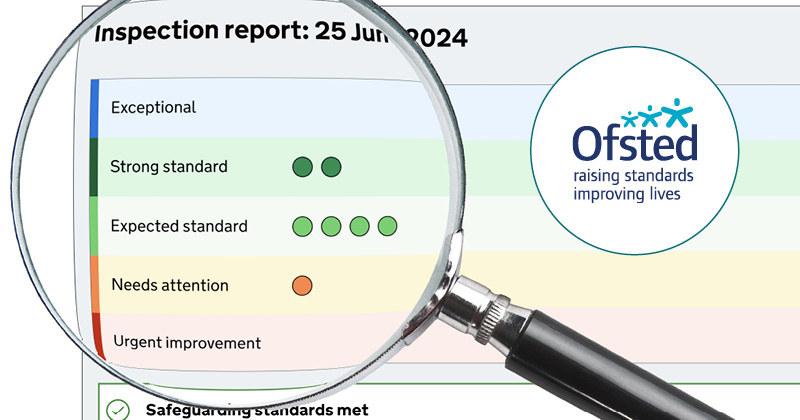If the measure of a good inspection framework’s strength is its helpfulness to school leaders, then my honest assessment is that some during my time as a leader and inspector have been weaker than others. So what about the new one?
I’ve heard some exasperating statements from headteachers over the years.
The frankly mind-boggling: “I haven’t looked at the Ofsted grade descriptors, but I know we’re Outstanding.”
The worryingly egotistical: “I know my school. Why should I look at it through an inspector’s eyes?”.
And the dangerously rebellious: “I don’t do things for Ofsted. I know what’s best for our children.”
Is it any surprise, then, that every new framework brings with it so much gnashing of teeth? A proportion of our leadership workforce seems intent on ignoring Ofsted in the hopes it will go away rather than engaging with its efforts to raise standards – and then seem surprised when that doesn’t work out for them.
In the meantime, there can be no denying that the most recent inspection framework determined the strategic development priorities of (and demonstrably made a positive difference to) the quality of education in almost all schools in the country – I dare say in every school that engaged with it, whether willingly or reluctantly.
We now have a new framework, its predecessor fallen victim to the cries of its detractors. I see it is already being met with the same level of opposition, and I suspect also with the same disregard.
Ofsted, for its part, has made it its business to be as collaborative and as accessible as possible. Any school who has wanted to shape the new framework has had a voice, and each of us has been given a helping hand to make its implementation more manageable and effective.
I refer of course to the toolkits the inspectorate published at the start of the year, which have now been improved by the constructive criticism we were able to offer.
Our leaders will approach inspections with clarity and confidence
Will they be a hindrance? To an extent, yes. The reality is that they will require time and effort to engage with fully. But then, any new framework was going to do that, and you might say we asked for it.
But will they be helpful? Absolutely. Used honestly and effectively, they have a great potential to reduce anxiety, sharpen self-awareness and strengthen leadership. They offer school leaders a clear framework for understanding how their schools measure up and how to improve, and this is before an inspection even takes place.
Given my background as an inspector, you might think “he would say that, wouldn’t he?” But from where I stand, significant progress has been made in recent years. Every school’s curriculum is the result of ongoing, thoughtful iteration. This simply would not have happened without the previous framework.
Yes, the schools that consistently secure strong or improved inspection outcomes tend to have leaders who understand Ofsted’s expectations inside out. They’ve read the handbook and studied the grade descriptors.
That’s not ‘playing the game’ or being a soulless technocrat, and it’s frankly disingenuous to suggest knowing the framework is in any way opposed to knowing your school.
So for our part, Halliard Trust will fully embrace the new toolkits.
Our leaders will evaluate themselves against every part of the framework, leaving no word or expectation unexamined. As a result, they will approach inspections with clarity and confidence, fully aware of what inspectors will focus on.
In the same spirit, we will also ensure that leaders’ toolkit-informed self-evaluations are shared with governors and trustees. This transparency will ensure everyone is on the same page about how each school aligns with national expectations.
And if gaps are identified, we’ll support leaders to address them through strategic development plans. Because as Sir Jon Coles wrote in these pages, it us who determine how high-stakes inspection is in the end.
Preparation and a supportive culture are crucial parts of a leader’s safety net. I wouldn’t want to do the job without one, and I wouldn’t want that for you either.












I find this opinion piece particularly one-sided. What the author fails to understand is that, indeed rubrics for improvement can be useful. However, when the power that wields that rubric does so in an intimidating manner, you get Headteachers who, in your words are “dangerously rebellious”. Is it rebellious to focus on one’s school rather than jumping through the hoops to get the highest grade? Is it rebellious to ensure the children and community are supported in the best way possible without resorting to what Ofsted thinks about it?
I agree schools need inspection, leaders held accountable. But I question if this is the best way with this bee toolkit that the author waxes lyrical about.
This is sycophantic nonsense from precisely the kind of person you’d expect to be writing this kind of desperate sycophantic nonsense to suck up to a doscredited inspectorate.